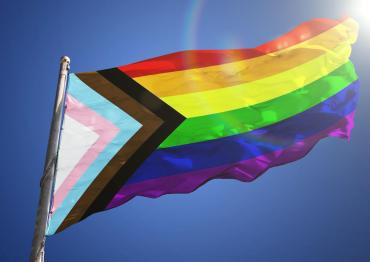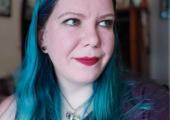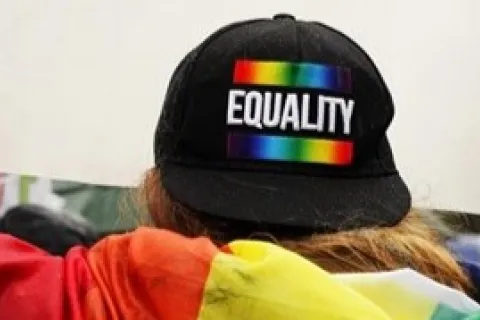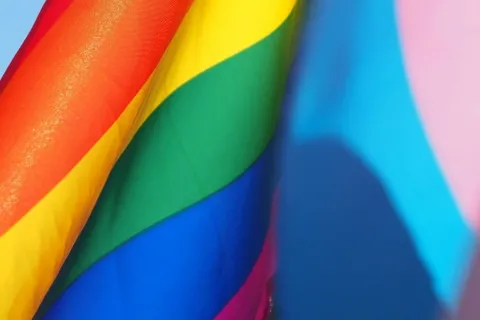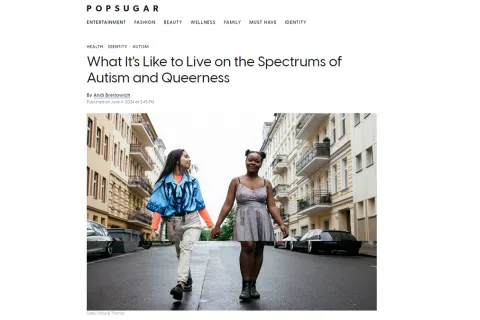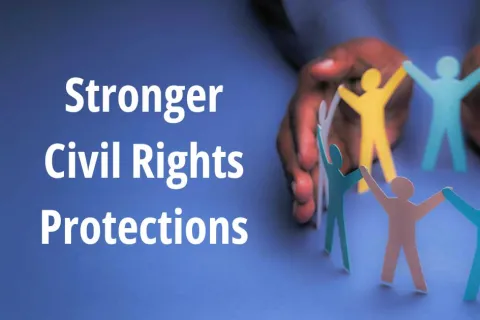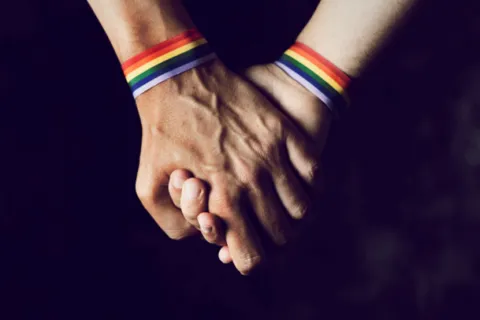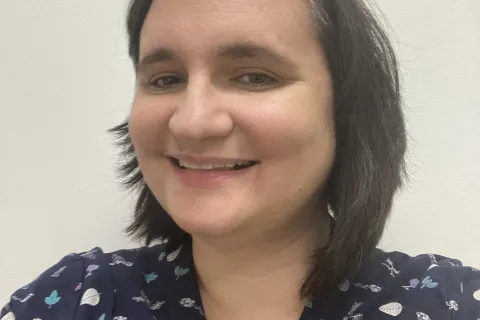Self-advocates in conversation: Connections between autism and gender presentation
By Brigid RankowskiBeing genderfluid and nonbinary is only a part of my identity. Being autistic is also a part of my identity. I cannot change either. But how I present to the outside world has largely been shaped by my lived experience. There are actually a lot of conversations currently going on around being autistic and gender presentation. Without having to do an entire deep dive on gender theory, I'll try to sum up what has been an interesting connection between the autistic and LGBTQIA+ communities.
When we were taught how to mask our behaviors to appear less autistic – skills learned consciously or subconsciously – we were always taught how to behave based on gender norms. It was in our face all the time. For example, flipping through any magazine we saw tips on how to stand, act, dress, move, and more, all highly gendered. The advice given men was vastly different than what was given to women on the exact same topics. So, for many autistic people, we were conditioned to mask with the templates of masculine or feminine. Gender neutral was never considered a default norm in our western culture. We not only put on a face to present as neurotypical, we fashioned how our face looked according to a gendered presentation. For some of us, we had no idea we were doing it until we had a chance to deconstruct it.
In the interview below I ask Anne Bonner, a single mother of two who identifies as nonbinary and was diagnosed as autistic in their 40s, their gender presentation was influenced growing up, what changed for them, and what they would tell their younger selves if only they knew then what they know now.
How do you feel your autism impacted your personal development?
I’m just a person living my life, but I will say the autistic perspective colors my view. My view of gender roles was taught by my conservative southern upbringing. I knew from a very young age I was really different from my peers and I had to be coached in attractiveness and socializing. I did have some early opportunities to be a little bit different, but the message was clear that that was unacceptable so I shut all those parts of me down.
Is there anything you would have wanted to do differently growing up that you now know more?
I knew I was different inside, but there wasn't the media available and I wasn't reading things. I was ignorant. I was truly ignorant to what I had going on internally. So I learned through my lived experience that, at the time, required validation from the outside world. When the time was right though, I was able to absorb the message and learn more about who I had always been inside. However living through my experiences, I thought, well, people just endure. People just continue. I was given the message so much that “this is how you're supposed to look” and “everything is uncomfortable and you still need to do it” because everyone else is doing it, so I will just endure.
Was there a point in your life that changed things for you and changed your direction?
I went to Baylor, which is a Baptist university. When I got there, they had just allowed dancing three to four years before I got there. It is the oldest private university in Texas and it is very conservative, similar to my upbringing. I wasn't ever myself there, but when I look back I can see the patterns I would later learn was my autism. I just broke, I had a shutdown and decided my life had to change. One one day, I realized “I’ve got one life to live”. After that, I was able to live some experiences that felt more consistent with who I thought I was or I was becoming.
Where do you feel you are at on your personal journey right now?
This might be a later chapter for me, but I am experiencing the unfolding. I'm in the middle of the unfolding now. I don't owe anyone a performance of some aesthetic change that I have to meet to belong into a group. I've never belonged to a group, I've always been outside of. I've never had the social need to belong so much that I have to prune pieces of myself away just to fit.
I think my natural unfolding is where it's at and I owe myself that because it's more consistent with who I am and the life that I've lived prior to this. So I don't know how I'll be out there in the world in the future. I just know that right now, in order to make my life what it needs to be and to feel okay in myself, that I just need to follow what resonates. So what I'm doing now is following sparks.
Is there anything you would want to say to yourself from 20 years ago?
If I could talk to myself 20 years ago, I would say make an effort to find people that fit, make an effort to find people that accept you in your genuine, closest to true expression and find a way to be comfortable with shedding those who don't, because it's in the loss that you experience contrast. It is when you're experiencing contrast, then you have a stronger picture of what you do or don't want or what might be your northern star. If you align more with your northern star after the loss then it had a purpose. That purpose was to increase the quality of your life.
Learn more: LGBTQIA+, Gender and Sexuality Resources
About the author
Brigid Rankowski is a self-advocate who writes and presents on various disability topics with a specialization in autism. She is executive director of The Way We Move, a social circus program that brings circus arts to marginalized communities. Her work for Autism Speaks includes articles on Coping with Disrupted Routines, LGBTQAI+ issues, the Adult Autism Diagnosis Tool Kit and the Roadmap to Self-Empowerment for Autistic Adults, among others.

